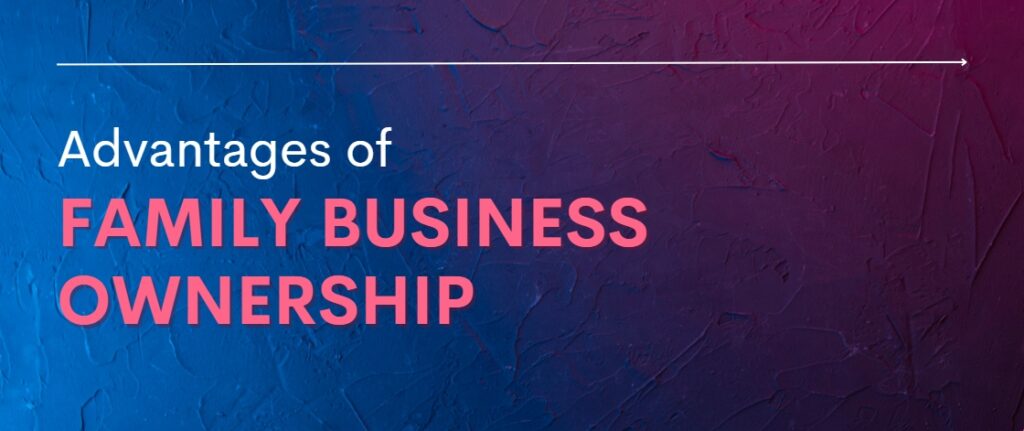
A family business is a type of business in which members of a family hold ownership and control. Typically, family members hold key management positions and are involved in the business’s day-to-day operations.
Family-run businesses can be small or large and operate in a wide range of industries. They often have a strong sense of tradition and a long-term focus on building and maintaining relationships with customers, suppliers, and employees.
Some examples of family businesses include Walmart (United States), Tata Group (India), Volkswagen Group (Germany), and Samsung Group (Korea). Other examples include Koch Industries, Cargill, and Publix Super Markets. In addition, many small and medium-sized businesses are family-owned and operated, such as restaurants, retail stores, and professional services firms.
Let us start with understanding the importance of family businesses.
Importance of Family Businesses in the Economy

Family businesses play a critical role in the economy, contributing to job creation, economic growth, and community development. Here are a few reasons why:
- Job Creation- Family businesses are often major employers in their communities, providing stable jobs for local residents. They also tend to have lower turnover rates than non-family businesses, which can help create more consistent employment opportunities.
- Economic Growth- Family businesses are a significant driver of economic growth, contributing to local and national GDP. As family businesses grow and expand, they create new markets and opportunities, which can lead to additional job creation and economic activity.
- Long-term Focus- Family businesses often have a longer-term perspective as they focus on building a legacy for future generations. This can result in more stable and sustainable growth over the long term, as well as a more substantial commitment to community development.
- Innovation- Family businesses are often more innovative as they focus on developing new products and services that meet the needs of their customers. They are also more likely to invest in research and development, which can lead to breakthroughs in technology and new business models.
Thus, family businesses contribute to the overall well-being of their communities. Next, let us discuss the advantages of family business ownership.
Advantages of Family Business Ownership

Family businesses have a unique advantage over non-family businesses, as they deeply understand the business and its history and have a shared sense of purpose and commitment to the company’s long-term success. Here are some advantages of family business ownership:
- Stronger Commitment- Family businesses have a more substantial commitment to the business’s success as they invest in its long-term success and the legacy it will leave for future generations. This can lead to a higher level of dedication and loyalty among family members, as well as a greater willingness to make sacrifices to ensure the success of the business.
- Agility and Flexibility- Family businesses are often more agile and flexible than non-family businesses, as they can make decisions quickly and adapt to changing market conditions. This is because family members often profoundly understand the business and its operations and are willing to take calculated risks.
- Greater Trust- Family businesses often have a higher level of trust among family members as they have a shared history and a sense of purpose. This can lead to better communication, collaboration, and a stronger sense of accountability.
- Lower Costs- Family businesses can often operate at a lower cost as they do not have to pay high salaries to outside executives or consultants. This can help improve profitability and cash flow and provide greater financial stability over the long term.
By recognizing the importance of family businesses and leveraging their strengths, owners can ensure that their businesses continue to thrive for generations to come.
We have seen the advantages of family businesses. Now, let’s discuss the challenges faced by family-run businesses.
If you need some ideas about what to read next, here they are:
Challenges Faced by Family Businesses

While family businesses have many advantages, they also face unique challenges that can impact their long-term success and sustainability. Here are some of the critical challenges faced by family businesses:
- Succession Planning- Succession planning is one of the biggest challenges facing family businesses, as it can be difficult to pass the business down to the next generation. Family members may have different interests or may not be interested in taking over the company, which can lead to conflicts and uncertainty.
- Family Dynamics- Family businesses are often subject to complex family dynamics, impacting decision-making and leading to conflicts. This can become even worse because of the fact that family members may have different roles and responsibilities within the business, as well as different levels of involvement.
- Governance and Management- Family businesses may struggle with governance and management, as family members may have limited experience or training in these areas. This can lead to inefficient strategic direction, poor decision-making, and inadequate oversight.
- Lack of Innovation- Family businesses may be less innovative than non-family businesses, as they may focus on maintaining tradition and continuity rather than pursuing new opportunities. This can lead to a lack of competitiveness in the marketplace and a failure to adapt to changing market conditions.
- Financial Constraints- Family businesses may be subject to financial constraints, as they may have limited access to capital and be reluctant to take on debt or bring in outside investors. This can limit their ability to invest in growth and innovation, as well as create financial stress for the business.
These challenges are significant and require careful planning and management to overcome. By understanding the unique features of a family business and taking steps to address these challenges, family business owners can ensure their businesses’ long-term success and sustainability.
Next, let us look at an example of successful family businesses and their strategies to overcome challenges.
Case Study- Estée Lauder Family Business: Strategies Used to Overcome Challenges

One successful family business that has overcome significant challenges is The Estée Lauder Companies, a global leader in beauty products. The company was founded in 1946 by Estée Lauder and her husband, Joseph Lauder, and is now run by their children and grandchildren.
Challenges Faced:
One of the biggest challenges faced by The Estée Lauder Companies was succession planning. As the company grew, it became increasingly difficult to manage family dynamics and ensure that the right people were in the right roles. Additionally, the company faced significant competition in the beauty industry and had to find ways to stay innovative and relevant in a constantly changing marketplace.
Strategies Used:
To overcome these challenges, The Estée Lauder Companies implemented several key strategies. First, they focused on developing strong leadership and management capabilities among family members. This involved providing training and development opportunities and setting clear expectations for performance and behavior.
Second, the company invested heavily in research and development and worked to stay at the forefront of beauty trends and innovations. This included developing new products and brands, as well as investing in digital marketing and e-commerce capabilities.
Third, The Estée Lauder Companies worked to maintain their family prestige value, which is the sense of tradition and legacy that comes from being a family-run business. This involved emphasizing the company’s history and heritage and involving family members in crucial decision-making processes.
Results:
These strategies have paid off for The Estée Lauder Companies, which is now a multi-billion dollar business with a global footprint. By leveraging their unique strengths as a family-run business and investing in innovation and leadership development, they have overcome the challenges many family businesses face and build a thriving business for generations to come.
And this is how the Estée Lauder family business overcame its challenges with its groundbreaking business management strategies.
So, we have seen the importance, advantages, and challenges family businesses face. In the final section, let us look at a company that helps you in growing your wealth & building your legacy.
The Bottom Line
In conclusion, owning a family business has both benefits and challenges. Understanding the unique dynamics of family firms is crucial for success. Family businesses play a significant role in the economy, and their success is vital for the communities they serve. The advantages of family business ownership include shared values, loyalty, and flexibility. However, there are challenges, such as succession planning and family conflicts. The case study of Estée Lauder illustrates how effective strategies, such as strong leadership development, innovation, and maintaining family prestige value, can help overcome these challenges. It is essential to recognize the features of family business ownership and to plan accordingly to ensure long-term success.
Frequently Asked Questions-
- What are the benefits of a family-owned business?
Advantages of family-owned businesses include shared values, long-term perspective, flexible management, and family cohesion. Additionally, family-owned businesses have the potential for higher employee loyalty and commitment due to the family’s stake in the success of the business.
- What are the advantages of family dynamics?
Family dynamics can bring several advantages to a family-owned business, including trust, loyalty, and a shared sense of purpose. Family dynamics can also promote effective communication, collaboration, and conflict resolution, allowing the business to thrive and grow over the long term.
- What are the challenges faced by family-owned businesses?
Disadvantages of a family business include succession planning, lack of professional management, and raising capital. Other challenges include family conflicts, difficulty separating personal and business matters, and maintaining family harmony. Family businesses may also face external challenges, such as economic downturns and changes in the competitive landscape.
Join Our Newsletter
Elevate your financial game & join the ranks of elite investors with Secvolt’s exclusive newsletter.
Join Our Newsletter
Elevate your financial game & join the ranks of elite investors with Secvolt’s exclusive newsletter.
Don’t just dream of wealth; achieve it with Secvolt. Schedule a call today for personalized guidance on your investment strategy and join the ultra-successful.
Ready to unlock your wealth’s truest potential & cherish affluence?
Secvolt, our hedge fund, sets the bar high with a record-breaking performance of 262% returns in 2022. With the brilliance of our highly advanced quant models and the efficiency of our risk mitigation protocols, we are yet to see a loss!
We’re the perfect ally to help you succeed financially and build the lasting legacy you have always aspired for.
Get in touch today. YOUR LEGACY AWAITS YOU…





